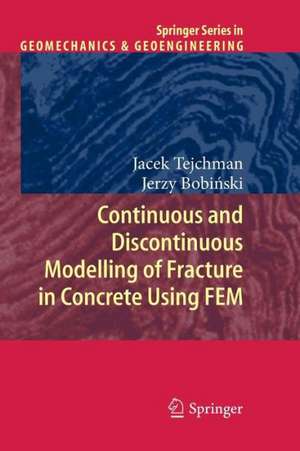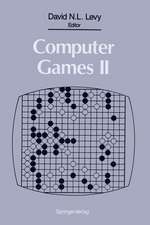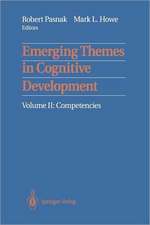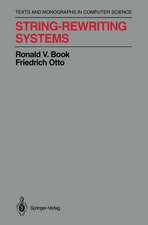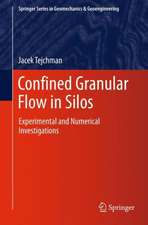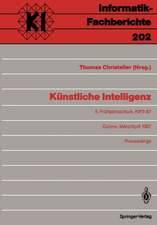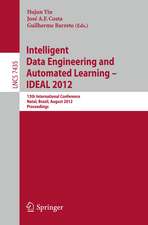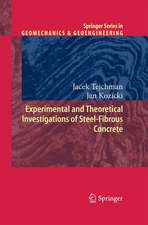Continuous and Discontinuous Modelling of Fracture in Concrete Using FEM: Springer Series in Geomechanics and Geoengineering
Autor Jacek Tejchman, Jerzy Bobińskien Limba Engleză Paperback – 9 aug 2014
| Toate formatele și edițiile | Preț | Express |
|---|---|---|
| Paperback (1) | 651.75 lei 6-8 săpt. | |
| Springer Berlin, Heidelberg – 9 aug 2014 | 651.75 lei 6-8 săpt. | |
| Hardback (1) | 655.85 lei 6-8 săpt. | |
| Springer Berlin, Heidelberg – 28 iul 2012 | 655.85 lei 6-8 săpt. |
Din seria Springer Series in Geomechanics and Geoengineering
- 18%
 Preț: 1594.49 lei
Preț: 1594.49 lei - 18%
 Preț: 1008.12 lei
Preț: 1008.12 lei - 18%
 Preț: 1407.43 lei
Preț: 1407.43 lei - 18%
 Preț: 1386.17 lei
Preț: 1386.17 lei - 18%
 Preț: 2175.30 lei
Preț: 2175.30 lei - 18%
 Preț: 2310.28 lei
Preț: 2310.28 lei - 18%
 Preț: 956.03 lei
Preț: 956.03 lei - 15%
 Preț: 648.56 lei
Preț: 648.56 lei - 18%
 Preț: 1851.00 lei
Preț: 1851.00 lei - 18%
 Preț: 970.87 lei
Preț: 970.87 lei - 18%
 Preț: 898.75 lei
Preț: 898.75 lei - 18%
 Preț: 948.16 lei
Preț: 948.16 lei - 18%
 Preț: 1219.46 lei
Preț: 1219.46 lei - 18%
 Preț: 1228.29 lei
Preț: 1228.29 lei - 18%
 Preț: 946.24 lei
Preț: 946.24 lei - 15%
 Preț: 646.62 lei
Preț: 646.62 lei - 18%
 Preț: 1588.19 lei
Preț: 1588.19 lei - 24%
 Preț: 1703.08 lei
Preț: 1703.08 lei - 24%
 Preț: 884.82 lei
Preț: 884.82 lei - 18%
 Preț: 1231.64 lei
Preț: 1231.64 lei - 18%
 Preț: 954.45 lei
Preț: 954.45 lei - 18%
 Preț: 948.47 lei
Preț: 948.47 lei - 18%
 Preț: 1847.53 lei
Preț: 1847.53 lei - 18%
 Preț: 1251.68 lei
Preț: 1251.68 lei - 20%
 Preț: 1166.52 lei
Preț: 1166.52 lei - 18%
 Preț: 947.18 lei
Preț: 947.18 lei - 18%
 Preț: 1669.33 lei
Preț: 1669.33 lei - 18%
 Preț: 1233.20 lei
Preț: 1233.20 lei - 15%
 Preț: 639.59 lei
Preț: 639.59 lei - 18%
 Preț: 1008.43 lei
Preț: 1008.43 lei - 18%
 Preț: 955.40 lei
Preț: 955.40 lei - 18%
 Preț: 944.67 lei
Preț: 944.67 lei
Preț: 651.75 lei
Preț vechi: 814.68 lei
-20% Nou
Puncte Express: 978
Preț estimativ în valută:
124.75€ • 135.55$ • 104.86£
124.75€ • 135.55$ • 104.86£
Carte tipărită la comandă
Livrare economică 21 aprilie-05 mai
Preluare comenzi: 021 569.72.76
Specificații
ISBN-13: 9783642433634
ISBN-10: 3642433634
Pagini: 424
Ilustrații: VI, 418 p.
Dimensiuni: 155 x 235 x 22 mm
Greutate: 0.59 kg
Ediția:2013
Editura: Springer Berlin, Heidelberg
Colecția Springer
Seria Springer Series in Geomechanics and Geoengineering
Locul publicării:Berlin, Heidelberg, Germany
ISBN-10: 3642433634
Pagini: 424
Ilustrații: VI, 418 p.
Dimensiuni: 155 x 235 x 22 mm
Greutate: 0.59 kg
Ediția:2013
Editura: Springer Berlin, Heidelberg
Colecția Springer
Seria Springer Series in Geomechanics and Geoengineering
Locul publicării:Berlin, Heidelberg, Germany
Public țintă
ResearchCuprins
Introduction.- General.- Literature Overview.- Theoretical Models.- Discrete Lattice Model.- Epilogue.
Recenzii
From the reviews:
“This book analyzes quasi-static and static processes in concretes and reinforced concretes by means of constitutive models formulated within continuum mechanics. The authors use continuous and discontinuous approaches. … be of interest to students and researchers in fracture mechanics, applied mathematics, solid mechanics and mechanical engineering.” (Răzvan Răducanu, Zentralblatt MATH, Vol. 1252, 2012)
“This book analyzes quasi-static and static processes in concretes and reinforced concretes by means of constitutive models formulated within continuum mechanics. The authors use continuous and discontinuous approaches. … be of interest to students and researchers in fracture mechanics, applied mathematics, solid mechanics and mechanical engineering.” (Răzvan Răducanu, Zentralblatt MATH, Vol. 1252, 2012)
Textul de pe ultima copertă
The book analyzes a quasi-static fracture process in concrete and reinforced concrete by means of constitutive models formulated within continuum mechanics. A continuous and discontinuous modelling approach was used. Using a continuous approach, numerical analyses were performed using a finite element method and three different enhanced continuum models: isotropic elasto-plastic, isotropic damage and anisotropic smeared crack one. The models were equipped with a characteristic length of micro-structure by means of a non-local and a second-gradient theory. So they could properly describe the formation of localized zones with a certain thickness and spacing and a related deterministic size effect. Using a discontinuous FE approach, numerical results of cracks using a cohesive crack model and XFEM were presented which were also properly regularized. Finite element analyses were performed with concrete elements under monotonic uniaxial compression, uniaxial tension, bending and shear-extension. Concrete beams under cyclic loading were also simulated using a coupled elasto-plastic-damage approach. Numerical simulations were performed at macro- and meso-level of concrete. A stochastic and deterministic size effect was carefully investigated. In the case of reinforced concrete specimens, FE calculations were carried out with bars, slender and short beams, columns, corbels and tanks. Tensile and shear failure mechanisms were studied. Numerical results were compared with results from corresponding own and known in the scientific literature laboratory and full-scale tests.
Caracteristici
Analyzes a quasi-static fracture process in concrete and reinforced concrete Presents a continuous and discontinuous finite elements modelling approach Written by leading experts in the field
